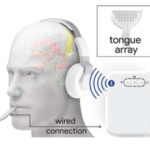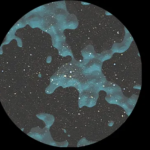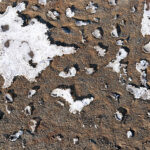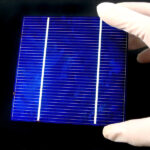I have had tinnitus for the last 9 years. When it started I didn’t understand why I was hearing a very high-pitched sound. We had moved to a new top-floor apartment when the sounds started. I thought maybe there were radio transmitters on the roof or some form of electronics that was creating the sound. But it travelled with me everywhere. And in time it got louder.
A year-and-a-half ago I went for a hearing test. The clinician took a hearing history.
- Was I exposed to loud noises for long periods in the past?
- Was I ever diagnosed with swimmer’s ear, Ménière’s disease, vestibular schwannoma, or neurofibromatosis?
The only thing I could come up with was playing bass guitar in a rock-jazz band for more than a decade from my teenage years to my early twenties. Could this have caused tinnitus starting in my mid-60s?
The results of the test showed I had a hearing loss of 50% in my left ear and a lesser decline in the right. It was then that I mentioned I was experiencing high-pitched sounds all the time with loud buzzing from time to time.
The suggestion was that getting hearing aids could address both the hearing loss and the tinnitus. Getting adjusted to putting small acoustic devices in my ears took time but I immediately noticed I could hear conversations in noisy places and that my tinnitus was dampened. The aids didn’t eliminate the condition but certainly made it more tolerable.
How Prevalent is Tinnitus?
When I was first diagnosed with tinnitus I didn’t know the statistics. Commonly referred to as “hidden hearing loss,” it affects 10 to 15% of adults globally and is debilitating to 2 to 4% of the population.
With a growing number of adults affected by the condition, according to Data Bridge Market Research, the therapeutic and pharmaceutical sector has watched revenue grow 3% annually since 2021 with US $2.5 billion expected to increase to over $3.1 billion by 2029. It represents almost a quarter of all the revenue spent today for hearing-related conditions.
Novel Therapies for Tinnitus Keep Coming Up
Using hearing aids to treat tinnitus, which is what I am doing, is just one technological solution. Go on Amazon to find others like earbuds and tinnitus patches. And then there are miracle supplements, ear tone tablets, ear drops, and sprays. You can buy audio CDs, sound therapy systems and white noise makers that give you relief from tinnitus when trying to sleep.
One of the latest technological “cures” to spring on the scene is called Lenire. It recently received US FDA approval and uses 30-minute daily auditory sessions and a tongue pulse stimulation device to retrain the brain to pay less attention to the condition. Lenire is called a tinnitus soother and in its clinical trial reports have shown that some of its enrollees have reported the condition vanishing.
But Lenire and all these other treatments are not a cure because they don’t address the cause. All they do is attempt to train the brain to ignore ringing and other noises the condition manifests or mask the sounds.
Knowing the Cause May Lead to a Cure
Identifying the cause could lead to a cure. At Massachusetts General Brigham’s (MGB) Eye and Ear Tinnitus Clinic, Stéphane Maison, Clinical Director, has been part of a team studying tinnitus. States Maison, “Beyond the nuisance of having persistent ringing or other sounds in the ears, tinnitus symptoms are debilitating in many patients, causing sleep deprivation, social isolation, anxiety and depression, adversely affecting work performance, and reducing significantly their quality of life.”
He notes that the devices, supplements, sound maskers and cognitive and other retraining therapies don’t cure the condition. That’s why Maison and his associates at MGB have been trying to discover the physical cause for the condition so that they can come up with a treatment that controls or ends it.
The research done by MGB involved enrolling 294 adults in good health between the ages of 18 and 72 with no previous history of ear or hearing problems.
When examined, none of the participants showed anything unusual in terms of ear anatomy and physiology. Pressures in the middle ear in all enrolees were normal.
The participants were asked by questionnaire to report any phantom sounds, their periodicity and duration. Of the group,
- 201 reported no transient sounds.
- 64 had experienced intermittent noise associated with exposure like a concert or from taking medication
- 29 were experiencing chronic tinnitus that had persisted for at least 6 months.
Testing confirmed that the occurrence of phantom sounds and tinnitus was directly linked to the neuron and dendrite losses in the auditory nerve along with hyperactivity in the brainstem.
The research team hypothesized that tinnitus results from our brains trying to compensate for hearing loss by increasing brainwave activity which leads to phantom noises and eventually chronic tinnitus. Even patients who had not experienced transient noises when examined showed some auditory nerve loss. This suggests that we are all vulnerable to the onset of tinnitus over time.
A potential cure may be in the works using drugs called neurotrophins. Neurotrophins are proteins secreted by the nervous system that are responsible for nerve cell survival. In adulthood, they stimulate regrowth or can cause diebacks. There are several candidate drugs today that are known to activate neurotrophins including some anti-depressants.
But what is needed is a drug to work with our neurotrophins to restore the auditory nerve and calm our energized brainstems.

















[…] December of last year, I posted to this blog site an article on new research into the cause of tinnitus. I wrote about a technological cure called Lenire which had received US […]